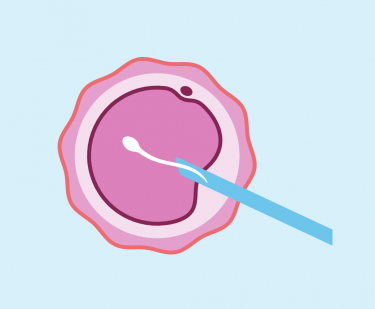
Evidence-based IVF
Trusted information for patients about IVF optional extras

Many IVF optional extras – or ‘add-ons’ – are not supported by good-quality evidence that shows they are effective or safe. A new website now helps patients navigate these options
Published 9 April 2025
For many patients, IVF is a stressful and overwhelming journey of ups and downs, involving lots of decisions about treatment options.
Many IVF clinics offer optional extras or ‘add-ons’ on top of standard IVF treatment, like EmbryoGlue, intralipid infusions, genetic testing of embryos and endometrial scratching.

These extras are promoted as a way to increase success with IVF, but in fact, most are not supported by good-quality evidence that they are effective or safe.
Of the 100,000 people undergoing IVF in Australia every year, our research shows that over 80 per cent use at least one add-on during their treatment.
Of course, these optional extras also increase out-of-pocket costs for patients, sometimes by thousands of dollars, without clear evidence that they work.
Just like many other areas of health and medicine, most people get information online.
Many IVF patients get information about optional extras from IVF clinic websites and online patient forums, both of which often contain misleading, incomplete or inaccurate information about their potential benefits and harms.

Evidence-based IVF
Trusted information for patients about IVF optional extras
IVF clinics may not always publish transparent cost information on their websites.
Additionally, evidence constantly evolves, and it can be challenging for IVF professionals to stay up to date with the latest research evaluating each IVF treatment option.
This lack of trustworthy consumer information about IVF optional extras hasn’t gone unnoticed.

During our research, IVF patients have told us about their desire for more accessible and reliable information to help them make better informed decisions about their IVF treatment.
The Government has also recognised this gap in multiple reports and recommendations.
All of these issues prompted us to develop Evidence-based IVF – an independent, reliable, and research-based website to inform patients about IVF optional extras.
What makes Evidence-based IVF different to many other resources is that we co-designed the website with IVF patients and IVF professionals, and that our trusted team of experts are impartial – with no financial ties to any Australian IVF clinics or IVF companies.
Given there is so much misinformation out there, it’s so great to have a legitimate website backed by science. It empowered me to make informed choices and to advocate for myself in this wild journey that is IVF.IVF patient, age 37, Victoria

Business & Economics
Thinking about using donated eggs to start a family?
Our expert team of international researchers has reviewed thousands of clinical studies and synthesized the results into plain language.
For each optional extra, a user will find:
A plain language explanation of what the procedure, technique or medicine is, what is involved, and what it proposes to do for IVF patients
An explanation of why it might work – and why it might not work
Whether the extra makes a difference to the chance of live birth, pregnancy and miscarriage, based on the available evidence
Information about risks and costs
Practical considerations – like whether you’ll need an extra appointment at the clinic.
A common IVF extra that we cover is Acupuncture, which involves the insertion of thin needles into specific parts of the body.
Acupuncture is suggested to reduce stress and anxiety levels, helping people to feel more relaxed and improving mental and physical health.
Our previous research found that acupuncture is used by about 50 per cent of IVF patients. However, when we looked at the evidence, we found that acupuncture makes no difference to the chance of getting pregnant and having a baby from IVF.

Health & Medicine
Male infertility may be the world’s ‘canary down a coal mine’
EmbryoGlue is another IVF extra. It is a solution that contains hyaluronic acid, a substance naturally present in the female reproductive tract. The embryo can be dipped into this solution 30 minutes before it is transferred into the uterus.
The evidence suggests that EmbryoGlue increases the chance of IVF success – however, this evidence was judged as low quality, meaning that the underlying research studies are not entirely reliable.
We are continuing to collaborate with IVF patients and professionals to evaluate the website and expand the scope to provide more helpful information to patients making decisions about their IVF treatment.
The website is an absolute game changer whether people are new to the world of IVF or IVF veterans. To have access to quality, digestible, unbiased information and research is pretty unheard of in the IVF space, this website is so needed by people and I’m so glad they will have access to it when they are at their most vulnerable.IVF patient, age 30, Victoria

By cutting through the noise and confusion, IVF patients can use the Evidence-based IVF website to make evidence-informed decisions about their IVF treatment, in consultation with their IVF specialist.
The IVF journey is tough enough – it’s time we made it easier for patients to make informed decisions.
The new Evidence-based IVF website currently provides evidence-based information for the following IVF optional extras: acupuncture, corticosteroids for IVF, EmbryoGlue, endometrial receptivity testing (ERA test), endometrial scratching, intralipid infusion, physiological intracytoplasmic sperm injection (PICSI), platelet-rich plasma injection into the ovaries, platelet-rich plasma infusion into the uterus, preimplantation genetic testing of embryos for aneuploidy (PGT-A).